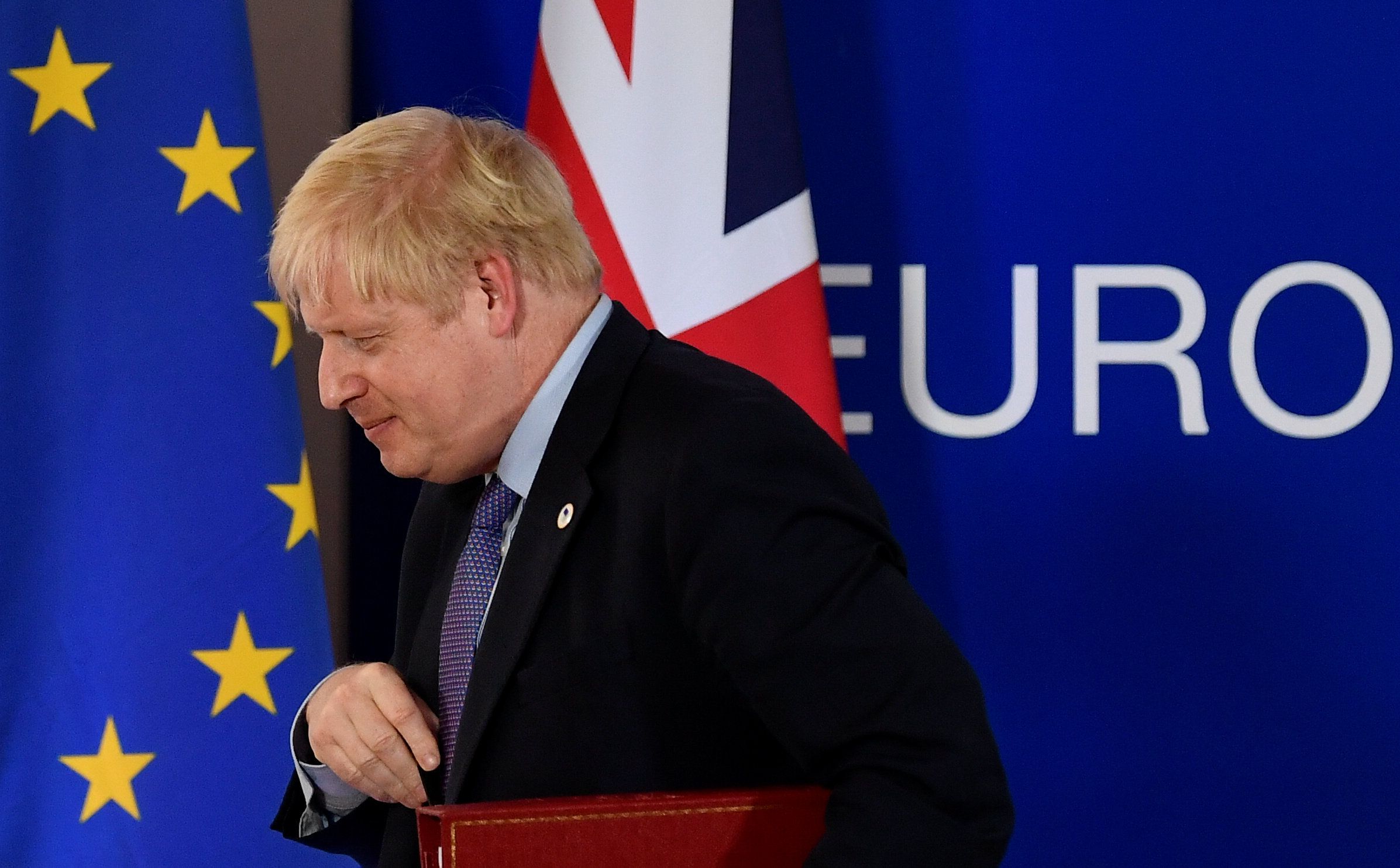September 16, 2020
Brexit has been a messy process since the United Kingdom voted to leave the European Union in June 2016. So messy, in fact, that although London and Brussels have already technically agreed on how to part ways at the end of this year, it's still unclear what the relationship — particularly on trade — will look like after December 31.
If there's no agreement, the UK would leave the EU with "no deal", which would entail both British and EU businesses and consumers suffering tariffs that would make goods and services more expensive amid the economic crisis unleashed by COVID-19.
The latest drama. With talks deadlocked, British Prime Minister Boris Johnson is gambling big again. He is pushing for a new law that would allow London to scrap parts of the interim withdrawal agreement that the UK already has with the EU if both sides can't agree on a permanent trade pact before October 15 (Johnson says he's willing to leave with no deal if necessary).
The main sticking point is the border between the independent Republic of Ireland — an EU member state — and Northern Ireland, which is part of the United Kingdom. The border has been virtually invisible since the 1998 Good Friday Agreement that put an end to decades of political violence in Northern Ireland, but Brexit throws that into question. Although the withdrawal agreement specifies no hard Irish border until a broader trade deal is signed, Johnson's bill would reserve the right for the UK to ignore that clause, if necessary, to prevent some EU trade rules from being enforced in Northern Ireland.
Johnson insists he is doing this to ensure the EU has no say over post-Brexit internal UK commerce. But many believe it's the wrong move, at the wrong time.
The gamble has caused an uproar in the UK.Five former PMs (including David Cameron, who called for the 2016 Brexit vote) argue that passing the law is backtracking on a binding international agreement, which sets a bad precedent as London needs to negotiate multiple new bilateral trade deals — like it just did with Japan and hopes to do soon with the US. Individual UK nations — for instance Scotland, which voted to remain in the EU and where nationalists seek another independence referendum — worry that under the proposed bill, they may have to accept lower quality standards for goods and services which would make it harder to sell to the EU.
Brussels is also livid. There's a broad perception within the EU that the British PM is trying to pull an eleventh-hour fast one as the new UK bill has been floated when both sides are in the homestretch of trade talks. But Brussels, used to the UK's often chaotic negotiation style with Brexit, has made it clear it won't budge. As far as the EU is concerned, any future trade deal must fall within the limits of the withdrawal agreement, period.
However, if Johnson follows through on his threat to walk away, the EU may call his bluff. After all, there's simply not enough time to renegotiate a new withdrawal agreement that would need to be ironed out and ratified by all 27 EU member states by December 31... in the middle of a pandemic.
So, what's Johnson up to? One explanation is that he is just playing hardball to get more concessions from Brussels on the ongoing trade talks. Another is that no-deal is the only way for the UK to control all its domestic trade, which would be a big win for the "hard" Brexiteer wing of the divided Conservative Party. But if the EU pushes back and the UK ends up suffering the economic fallout of a no-deal Brexit, will Johnson blame Brussels or himself?
From Your Site Articles
More For You
Think you know what's going on around the world? Here's your chance to prove it.
Most Popular
Donald Trump alongside Nigel Farage amid a television interview at his Trump Turnberry course in South Ayrshire during his visit to the United Kingdom, on May 3, 2023.
PA via Reuters
The US government will reportedly fund MAGA-aligned parties and think tanks in Europe. But with US President Donald Trump’s favorability in Europe so low, do they even want the money?
- YouTube
Zelensky agrees: elections matter #PUPPETREGIME
As more small businesses move sales, payments, and customer relationships online, they unlock new opportunities, but they also become easier targets for cyber-criminals and other threat actors.
© 2025 GZERO Media. All Rights Reserved | A Eurasia Group media company.
